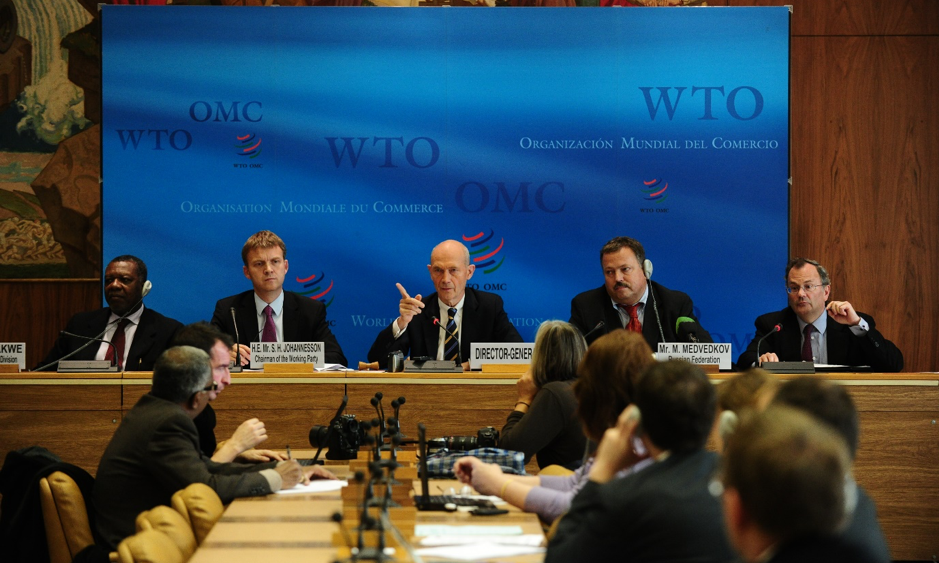Posted on 6 November 2019 by Soo-hyun Lee
The views expressed in this publication are those of the authors and do not necessarily represent those of the Agenda 2030 Graduate School or Lund University. The present document is being issued without formal editing.
The governance and responsibilities of international economic law both originate from and are realized through institutions that fulfil numerous roles, from sources of law, auditors of policy to arbitrators of disputes. Each aspect of international economic law has representative institutions that have been attributed the responsibilities of governance through both international convention as well as in practice. In fulfilling these functions and exercising their role-responsibility, they introduce predictability and systematization. For the World Trade Organisation (WTO), Member States engaged in trade depend on the responsibility of the institution to ensure that other Member States may behave predictably in maintaining competitive markets. For the International Monetary Fund (IMF), the institution acts as a gatekeeper to development finance by evaluating the extent to which macroeconomic policy is sound.
The WTO and international tribunals such as the International Centre for the Settlement of Investment Disputes (ICSID) also execute these responsibilities through offering forums to settle disputes. The governance responsibilities discharged by these institutions are ultimately built upon the obligations of the Members to those institutions. Member States, or private entities within Member States, are obliged to follow certain guidelines that are both propagated and administered by the governance institutions of economic law. If Member States do not observe the obligations to which they’ve agreed by acceding to these governance institutions, then those institutions lose jurisdictional competence in being to fulfil their objectives.
Yet this is where the challenge arises. The purpose and objective of these governance institutions have become increasingly limited in scope and exclusive in practice. This is perhaps the most evident in settling disputes or contesting claims. The institutions of international economic law have become venues for States to justify their digression from a set of principles that do not necessarily arise from a global consensus. In other words, these institutions have been rendered their role-responsibility as being retrospective mechanisms, enforcing the obligations that Member States have committed to observing.
However, one must remember that these economic governance institutions are at the forefront of development practice. The WTO, ICSID as part of the World Bank Group and the IMF are core players in the Sustainable Development Goals. While many aspects of their operations do not share a clear connection with the 2030 Agenda, these institutions represent the main channels of finance (trade, investment and development finance) that the United Nations has been ushering Member States to embrace in order to achieve the SDGs. The position of the WTO, for instance, is that reduced barriers to trade such as government subsidies or tariffs, allow for a more efficient allocation of resources at the global level. With the lowest world price, more goods and services can flow across borders. This is meant to promote SDG 8 by making domestic producers more efficient and competitive in order to compete against that world price and SDG 10 by permitting developing economies relaxed rules under Special and Differential Treatment, permitting them to use trade distorting economic policies to improve their terms of trade.
Another example is the IMF, which dispenses development financing based on policy reform aimed at addressing macroeconomic and/or other policies in potential recipient States. The contributions of the IMF to the 2030 Agenda are largely based on policy interventions in supporting Member States in their independent efforts to achieve the SDGs. In assessing its potential impact on a State, the IMF takes a more interconnected approach to the Agenda, a careful investigation of its benchmarking and financing requirements would be necessary to a more comprehensive evaluation of its SDG impact since many of the IMF’s objective revolves around neoliberal convergence.
Economic data certainly supports these claims but fails to reveal potential consequences of nurturing global trade or embracing a liberal, privatized and formal economy. One may look to China as it attempted to meet the accession conditions that the WTO placed on new Member States. The country decentralized large swathes of its economy but was permitted Special and Differential Treatment in order to build up its industries so that they may compete in rather than by engulfed by global trade competition. Unfortunately, this led to the central government losing its political grip on industry, now controlled by provincial governments, in attempting to enforce environmental standards and embrace sustainable means of production and consumption. This has given rise to some of the most environmentally damaging industries known in modern history.
This demonstrates the challenge that the SDGs may not always share immediately clear complementarities with one another. The institutions of economic governance may provide clear contributions to reducing net poverty, but a critical reflection on how they may simultaneously impact the other SDGs is a difficult yet necessary exercise. Principles such as common and differentiated responsibilities when applied in isolation can result in consequences that may very well offset their intended benefits, as one can see with Special and Differential Treatment of the WTO. As such, international economic law and economic governance institutions must find ways to both broaden and deepen their relevance to the SDGs, otherwise face continued criticism, abrogation and extinction in a world that changes much faster than they do.
The views expressed in this publication are those of the author’s and do not necessarily reflect the views of any institution.

